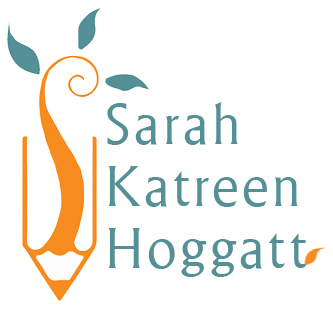 As writers, we usually don’t get to see into each other’s creative process. We see the final product or perhaps a semi-polished version read aloud in a writer’s group, but rarely do we get a peek at the raw material.
As writers, we usually don’t get to see into each other’s creative process. We see the final product or perhaps a semi-polished version read aloud in a writer’s group, but rarely do we get a peek at the raw material.
My rough drafts come out of my writing notebook. To make it, I decorated a composition book with a collage of pictures meaningful to me and covered it all with contact paper to protect it. There are pictures of the Eiffel Tower, Amsterdam, an elephant, and a forest covered in snow. They remind me of places I’ve been and things I’ve seen. There are also words pasted on: “Places to play,” “Let your voice be heard,” and “Forever Art” to inspire me.
Ever since I made it, it’s been the notebook I pick up whenever I want to write a new poem or when I long to explore an idea. The edges are now dog-eared and worn. The notebook has gone wherever I’ve traveled and is often in my workbag when I go about my day. Many of the poems from my third poetry book can be found here as well as many going into the fourth. Some of them are easy to read while others are covered with arrows, words crossed out, and writing on the side to the point only I can decipher the final lines. My editors, when looking at the notebook, commented on how my writing is shockingly small. There are bits of phrases scattered here and there in the margins – phrases I heard on the radio, read in a book, or thought of myself that I wanted to use as ideas for later. It’s my continual source of inspiration.
I love this notebook. I can pour into it my thoughts and feelings and only type out on my computer what is worth developing. As a writer, this notebook is where my heart is. It’s become like a highly valued friend and I know when I open it, I am completely free to be myself. I can experiment, try new ideas, and write about whatever themes I want.
This raw creativity is where a writer should start: a place where you are free to be yourself and express what is inside. Jack London once said: “Keep a notebook. Travel with it, eat with it, sleep with it. Slap into it every stray thought that flutters up into your brain. Cheap paper is less perishable than gray matter, and lead pencil markings endure longer than memory.”
For some reason, writing a poem in my notebook is easier than on a computer. I love refining a poem as I type it up in Word but the raw material always feels better to me written in pencil between my mosaic of pictures. Every writer has their own way of doing things. They find what works for them. Having a notebook in which to spill it all out as if to a friend is mine.

